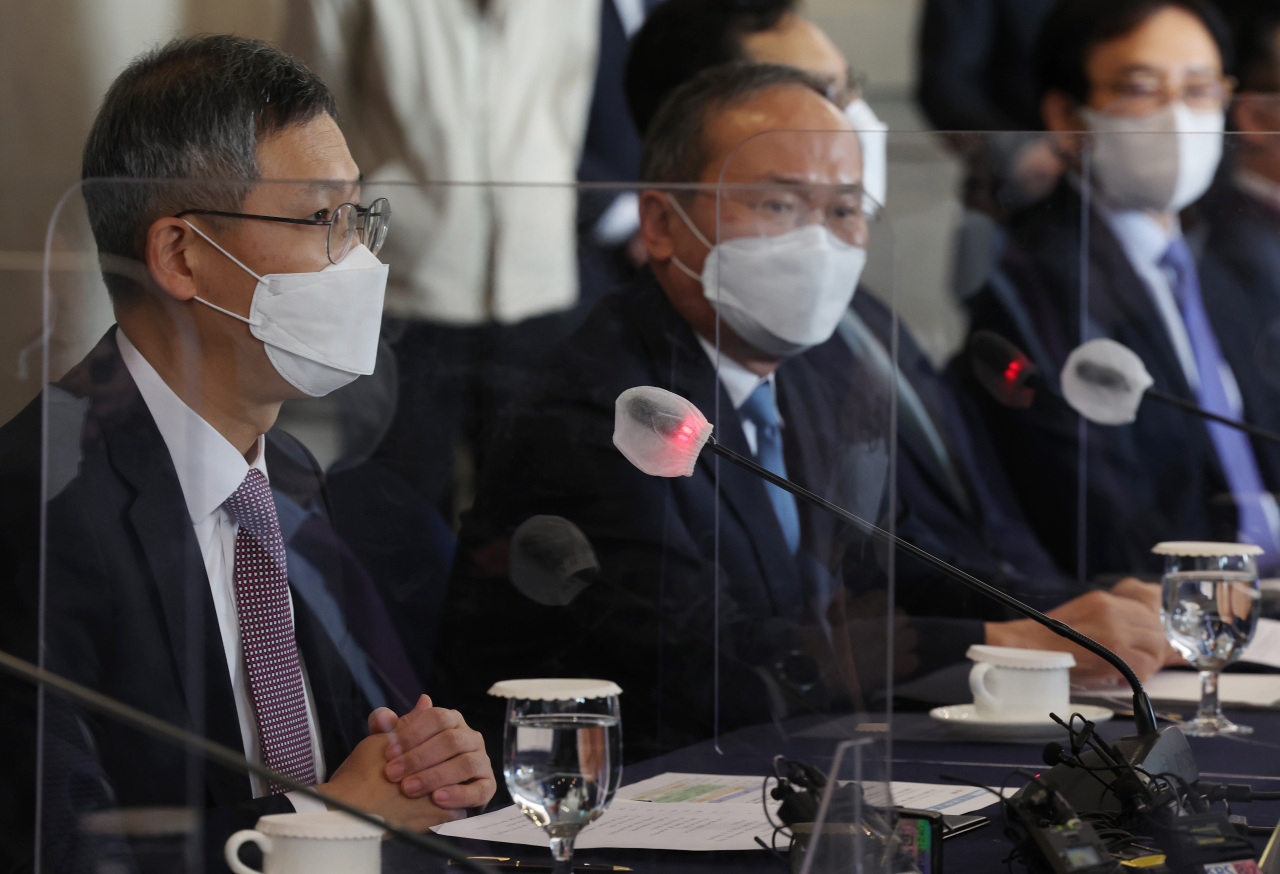Korean chip industry to invest W56.7tr this year: lobby group
By Son Ji-hyoungPublished : Feb. 16, 2022 - 18:09

The South Korean semiconductor chip industry is poised to invest 56.7 trillion won ($47.4 billion) in 2022 to create jobs and strengthen a supply chain amid talent shortages and external uncertainties, according to a lobby group Wednesday.
The figure for some 150 companies across the Korean chip supply chain is 10 percent higher than the domestic industry’s total spending in 2021 at 51.6 trillion won, according to the Korea Semiconductor Industry Association. The lobby group is currently helmed by Lee Jung-bae, president of Samsung Electronics and chief of its memory chip business.
Of the total for this year, a 1.8 trillion won investment will go to small- and medium-sized enterprises dedicated to raw materials, components, equipment and semiconductor post-processing. Also, 1.3 trillion won will be spent on SMEs dedicated to chip designs and compound semiconductors composed of silicon and carbide.
The plan was unveiled during a closed-door meeting between industry representatives including Samsung’s Lee and Industry Minister Moon Sung-wook, held Wednesday at 2 p.m. in Seoul.
Lee urged more chipmakers’ projects to be subject to lighter regulations, such as an abridged feasibility study as described in the forthcoming Korean version of the Chips Act which goes into effect in July.
Moon in response pledged to add 700 more spots for semiconductor-related college enrollment by end-2022 and establish new curricula with the aim of nurturing 1,200 chip professionals each year, according to the Ministry of Trade, Industry and Energy in a statement.
Moon added that the government will support investment for better access to electricity and water in semiconductor zone infrastructure, and set up a body to ensure deregulation with regards to semiconductor-related spending.
This largely echoes earlier pledges in the legislation of the Korean equivalent to the Chips Act, as semiconductor powerhouses such as the United States, China and Taiwan are in a heated race to draw up state funding with new laws or initiatives to address global supply chain disruptions.
Korea in 2021 unveiled plans to invest 510 trillion won by 2030 to secure a supply chain in a “K-Semiconductor Belt Initiative,” a year before the new rules passed the parliament in January to protect the national industry.
The figure for some 150 companies across the Korean chip supply chain is 10 percent higher than the domestic industry’s total spending in 2021 at 51.6 trillion won, according to the Korea Semiconductor Industry Association. The lobby group is currently helmed by Lee Jung-bae, president of Samsung Electronics and chief of its memory chip business.
Of the total for this year, a 1.8 trillion won investment will go to small- and medium-sized enterprises dedicated to raw materials, components, equipment and semiconductor post-processing. Also, 1.3 trillion won will be spent on SMEs dedicated to chip designs and compound semiconductors composed of silicon and carbide.
The plan was unveiled during a closed-door meeting between industry representatives including Samsung’s Lee and Industry Minister Moon Sung-wook, held Wednesday at 2 p.m. in Seoul.
Lee urged more chipmakers’ projects to be subject to lighter regulations, such as an abridged feasibility study as described in the forthcoming Korean version of the Chips Act which goes into effect in July.
Moon in response pledged to add 700 more spots for semiconductor-related college enrollment by end-2022 and establish new curricula with the aim of nurturing 1,200 chip professionals each year, according to the Ministry of Trade, Industry and Energy in a statement.
Moon added that the government will support investment for better access to electricity and water in semiconductor zone infrastructure, and set up a body to ensure deregulation with regards to semiconductor-related spending.
This largely echoes earlier pledges in the legislation of the Korean equivalent to the Chips Act, as semiconductor powerhouses such as the United States, China and Taiwan are in a heated race to draw up state funding with new laws or initiatives to address global supply chain disruptions.
Korea in 2021 unveiled plans to invest 510 trillion won by 2030 to secure a supply chain in a “K-Semiconductor Belt Initiative,” a year before the new rules passed the parliament in January to protect the national industry.

















![[KH Explains] Hyundai's full hybrid edge to pay off amid slow transition to pure EVs](http://res.heraldm.com/phpwas/restmb_idxmake.php?idx=652&simg=/content/image/2024/04/18/20240418050645_0.jpg&u=20240418181020)

![[Today’s K-pop] Zico drops snippet of collaboration with Jennie](http://res.heraldm.com/phpwas/restmb_idxmake.php?idx=642&simg=/content/image/2024/04/18/20240418050702_0.jpg&u=)